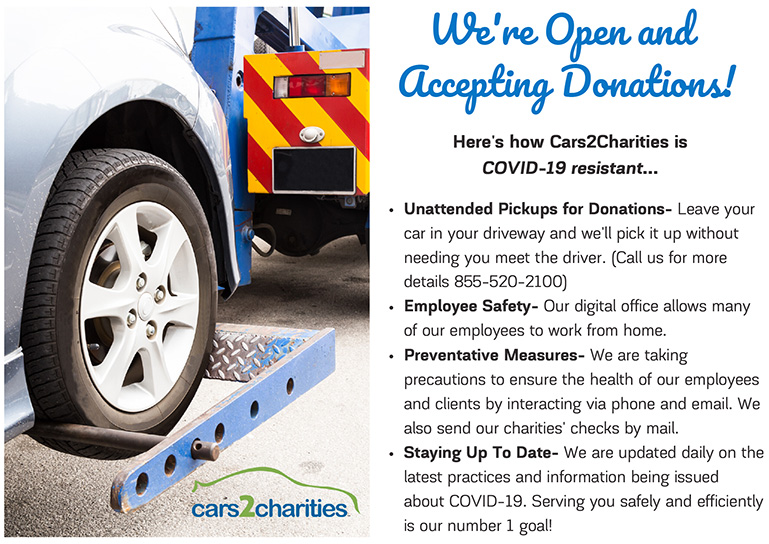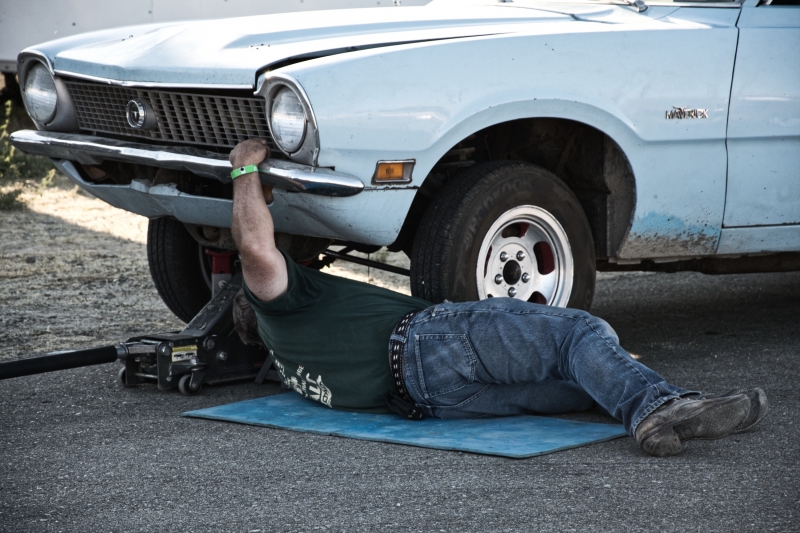How to Tell When Your Old Car is Unsafe to Drive
Cars are the ultimate tool for getting around and getting things done. From work to school and errands to long road trips, there's always been one constant presence: your four-wheeled friend. It's completely understandable to feel an emotional connection to your car after all the years of being your trusty sidekick. However, there will come a time when it'll be too old and rundown, driving it becomes dangerous.
How to Tell When Your Old Car is Unsafe to Drive
Vehicles are the real workhorses of daily life.
 If you dread the day that you need to replace old Betsy with a shiny new model, know that it's part of a vehicle's lifecycle. It's a statistical fact that cars become less safe to drive as they age. According to the National Highway Safety Administration, the driver of a vehicle that's 18 years old or older has a 71 percent greater chance of dying in a bad car crash compared to a driver who drives a three-year-old car. That's a pretty sobering statistic and a reminder that newer models have technology that can save lives.
If you dread the day that you need to replace old Betsy with a shiny new model, know that it's part of a vehicle's lifecycle. It's a statistical fact that cars become less safe to drive as they age. According to the National Highway Safety Administration, the driver of a vehicle that's 18 years old or older has a 71 percent greater chance of dying in a bad car crash compared to a driver who drives a three-year-old car. That's a pretty sobering statistic and a reminder that newer models have technology that can save lives.
When is a Car Too Old to Drive?
There are several warning signs to look out for that can help gauge if you should retire your ride or not. Significant repairs such as an engine overhaul or transmission failure are one of them, which means it's going to be all downhill from there. Another risk is driving a car that has a recall on it. According to the National Safety Council, 1 out of 4 vehicles on the road have an open recall order. Do an auto VIN check to make sure your car isn't part of a recall or contact the manufacturer immediately.
Not every car that runs is roadworthy, especially when it's been a while since it last saw a mechanic. If your ride spends more time in the shop and the repairs are costing you a lot of money, it's time for another vehicle.
What To Look Out For
Every car has essential systems that can warn you of an impending mechanical or electrical failure. Here are some of the signals to look out for:
Instrument Panel Warning Lights
The lights on your car's instrument panel can give you a quick status report on the state of your ride. These lights come on for a brief period before powering off again after the engine comes alive, which is normal. Your vehicle's onboard computer is running diagnostics to make sure everything is working.
Each light represents an important component of your car, such as your engine, battery, and ABS, and others. If any lights stay on, such as the check engine light or battery, your vehicle needs servicing immediately.
Transmission System
Modern transmission systems don't need as much attention as brakes or suspension systems, but they do need servicing. Transmission fluid levels should never dip below minimum and should always remain clean. Both the tranny fluid and filter need periodical replacement. If you hear a loud clunking sound accompanied by hard shifting or a vehicle that refuses to move, your car's transmission needs some TLC.
Suspension System
Your car's wheels, tires, springs, shock absorbers, and other parts make up its suspension system. If anything listed here happens while your driving, get your vehicle serviced immediately:
● If your vehicle has an off-center steering wheel or there's excessive vibration, it needs a wheel alignment and balancing.
● If the car violently jerks to either side while your driving, you may have a bigger problem.
● If you notice that there's too much sway while your driving, the springs or shock absorbers may need replacement.
● When your vehicle bottoms out while driving over a hump or an uneven surface even with a light load, the shocks could be dead.
Brakes
Your car's braking system has several moving parts that need inspection and servicing at regular intervals. As a rule of thumb, always ask the mechanic to inspect your brakes when you have your tires rotated or during an oil change.
Warning signs:
● If you have to floor the brakes to get the car to stop.
● The brake pedals squeal.
● The handbrake seems loose or is very easy to crank.
● A grinding sound when applying the brakes.
● Your car pulls either to the left or right when braking.
● The brake warning sign stays on.
● Smoke or weird smells are emanating from the wheels.
Wheels and Tires
Your vehicle's tires and wheels help you maintain control when driving. Using a car with worn-out tires or misaligned wheels is dangerous and an accident waiting to happen. Make sure your vehicle's tires and wheels are operating at peak condition by making sure all tires have the correct air pressure. Look out for bubbles or bulging areas on the tire walls and uneven tire tread wear. Dents, cracks, or breaks in the wheels are also not a good sign.
Getting Rid of Your Vehicle
So, you have decided that your vehicle is no longer safe to drive. Now what? Well, you have a few options. You can try selling it yourself, or you can donate it to your favorite cause.
 Cars2Charities is a nationwide company that offers free towing for donors. When donating your vehicle, you have the control to decide where the proceeds of your donation goes. Cars2Charities organized each charity into separate ‘causes’ that make it easy for you to navigate. These causes include: animal rescue, arts and entertainment, children’s charities, first responders, health and medical research, homeless, human services, veterans, and a few others.
Cars2Charities is a nationwide company that offers free towing for donors. When donating your vehicle, you have the control to decide where the proceeds of your donation goes. Cars2Charities organized each charity into separate ‘causes’ that make it easy for you to navigate. These causes include: animal rescue, arts and entertainment, children’s charities, first responders, health and medical research, homeless, human services, veterans, and a few others.
Since most charities do not have the tools, time, or staff to process their own vehicle donations, they trust companies like Cars2Charities to guide their donors through the process.
(Oh and your car donation is also tax deductible!)
Donating your vehicle is quick and easy, simply call (855) 520-2100 or visit www.cars2charities.org to speak to a vehicle donation expert.
Author’s bio:
Patrick Peterson is a writer/editor at AutoDetective. Born and raised in the automotive world. He's a passionate writer who crafts exquisite content pieces about everything related to cars and bikes.



